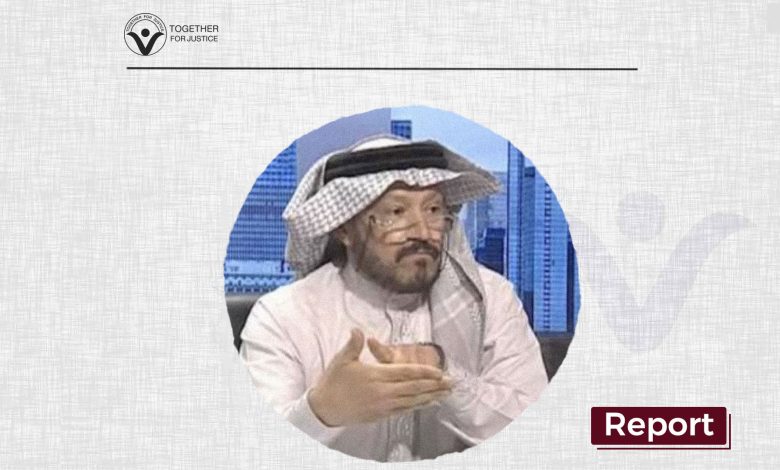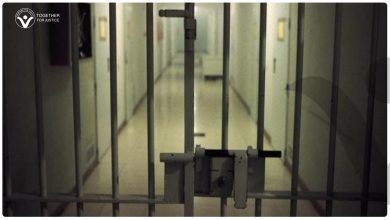Writer Jamil Al-Farsi’s plight in Saudi prisons increasing for rejecting normalization and privatization of Aramco

Together for Justice expresses deep concern over the continued detention of Saudi writer and economic expert Jamil Al-Farsi, despite serving his prison sentence more than a year and a half ago, amid authorities’ rejection to disclose his fate and detention conditions.
Al-Farisi was arrested on September 25, 2017 after security forces stormed his house and took him to Saudi State Security Service headquarters. This occurred soon after Al-Farisi spoke with a Saudi minister over the phone, counseling and emphasizing not to sell Aramco and not to privatize it in any way, either fully or partially.
Al-Farsi was also one of the most vocal opponents of normalization with the Israeli occupation. He expressed this rejection on social media platforms, which led the regime—which does not tolerate any dissenting opinion, particularly when it comes to the Israel file—to target him.
In 2020, the Specialized Criminal Court issued a five-year prison sentence against Al-Farsi after a secret trial that violated fundamental principles of justice. Al-Farsi is still held in Saudi jails despite completing his prison sentence a year ago.
The only offense committed by Al-Farsi was his stance opposing normalization with the Israeli occupation and his criticism of the choice to purchase Aramco in international markets. The Saudi authorities viewed this as a threat to the stability and security of their nation.
Al-Farsi was a strong advocate for the rights of political prisoners and repeatedly called for their release while denouncing their arbitrary detention. However, the authorities arbitrarily responded to his tweets by locking him up and handing him the same fate. Despite his difficult health situation, authorities refused to provide him with the required health care.
Together for Justice reiterates its appeal to the relevant UN officials and all other free people to put pressure on the Saudi government to free all political and religious prisoners and launch a thorough investigation into the abuses they have endured.
Together for Justice also affirms that these political prisoners should not have been arrested in the first place. However, the Saudi government attempted to legitimise their arbitrary detention by having them appear in court, but their trials were held in violation of the fundamental principles of fair trials. In addition, the government disregarded the court’s directives by keeping these prisoners in custody even after their prison terms were completed.




